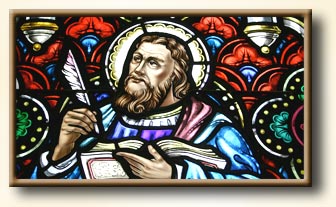|
It is often characteristic of those who are hostile to or ignorant of Anglicanism to say that this particular segment of Christendom originated in the 16th century, when King Henry the Eighth quarreled with the Pope over the matter of the King’s desire to remarry. Henry is thus said to have “founded” the Church of England, from which the Anglican Communion has developed. Nothing could be more mistaken.
The Christian Church is known to have existed in England and elsewhere in the British Isles at least as early as the fourth century and probably much earlier. The practice of the Christian religion and the work of the Church in Britain were continuous through succeeding centuries. The Pope sent Saint Augustine there in A.D. 597 and from at least A.D 664 the Church in England was allied to and under the spiritual authority of the Pope in Rome.
The Church of England, as an organization, may be said to have come into existence in 1534 when the Act of Supremacy made the King the head of the Church rather than the Pope. There was no separation from the Church Catholic. Anglicanism continued the ancient faith and worship as they had always been and simply cut its ties of authority with the Roman Pontiff. A prepositional change turned the centuries-old Church in England into the Church of England.
A little later, Britain was swept by the tides of unrest which had changed the face of much of the religion of the European continent. The preachments of Luther, of Calvin and Zwingli -- the great Protestant reformers -- without doubt had their followers in England. Protestant ideas brought about certain reforms adopted by the Anglican Church. However, it is also of the utmost importance to note that the faith and practice of the Church of England never ceased to remain in true and loyal continuity with the Catholic and universal faith and practice of the Church in England as that faith had existed previously for more than twelve centuries.
Anglicanism, as represented in the Mother Church, the Church of England, continued to believe the essentials of the Faith, as set forth in the Bible, the Creeds and the teachings of the Fathers and decrees of the Ecumenical Councils. Its services were somewhat reformed and altered but they still remained recognizably in the pattern of the services in other parts of the Church Catholic.
From England, Anglicanism was carried and spread by settlement and by evangelization to most other parts of the world. A strong circle of national churches developed which were allied in faith and practice to the Church of England and which looked to the See of Canterbury as their spiritual center. Thus Anglicanism today is found in the United States, Canada, the West Indies, South America, the Middle East, Africa, India, Australia, New Zealand, Polynesia, China, Japan, the Philippines and elsewhere. Because of heresies in doctrine and deviations in Order which were adopted in 1976 by the Episcopal Church, thitherto the representative of Anglicanism in the United States, a “continuing Anglican” movement sprang up in the United States and Canada and the Caribbean to preserve orthodox Anglicanism.
Anglicanism is not a faith. It is rather a simplified, purified and reformed expression of the Church faith, the ancient faith of the Apostles and the early Church. It omits nothing of the essentials -- Biblical, Creedal, Sacramental, or of Order. It has added nothing to the Faith once received by the saints. It is a Church of ritual and solemn form as embodied in one of the great treasures of Christianity and the English language, the historic Book of Common Prayer. Anglicanism has merely cleansed itself of excrescences and impurities which had crept in. It respects the Bishop of Rome as a great leader of the Christian faith, but does not accept any claim of supreme authority by him. It is thus a Catholic faith, Protestant only in its separation from the Pope.
|



